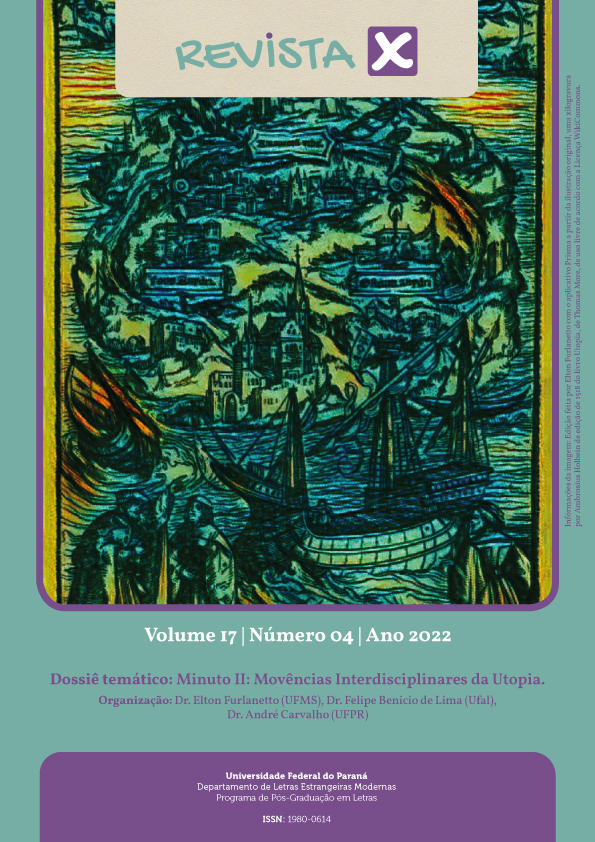Dystopia as the Curatorship of Absences and Impasses of the Utopian Imagination in Station Eleven
DOI:
https://doi.org/10.5380/rvx.v17i4.86950Keywords:
Station Eleven, Dystopia, Novel, Literary StudiesAbstract
In the article, the novel Station Eleven (2014), by Emily St. John Mandel, will be studied following three interpretative veins: in the first, we focus on the hypostasis of the idea of culture, as described by Adorno in his reading of Aldous Huxley’s Brave New World (ADORNO, 1998). The separation, created by such hypostasis, between “spirit” and “material needs” engenders obstacles to the figuration and, consequently, diminishes its potential of revealing real life problems; in the second, we study the temporality that rules the period of anomaly introduced by dystopia. Evoking Walter Benjamin’s Thesis XV on the concept of history, which asserts that the explosion of the continuum of history is an inaugural revolutionary act which determines the creation of a new temporality, we can understand the periodization established by dystopia in Station Eleven as a somewhat allegorical version of the temporal rupture described by Benjamin; in the third, we concentrate attention on the figure of the Museum of Civilization and on the notion of dystopia as the curatorship of absences. A recovering impulse of the “pre-collapse world” permeates the plot. The different paths that emerge from the novel guide to the same crossroad: the spectral presence of the collapsed world as an obstacle to the creation of a new one. We will see, in the article, several forms of such impasse in the narrative. The book is precise as a diagnosis of the crises of the historic imagination which afflicts our time. Its impasses give form to dilemmas which are the basis to utopic and dystopic narratives alike.
Downloads
Published
How to Cite
Issue
Section
License
The authors retain copyright of all works published by Revista X.
Revista X publishes articles under the Creative Commons — Attribution 4.0 International — CC BY 4.0 license.
The non-exclusive distribution of online papers through institutional and pre-print repositories is hereby authorized.
The author’s style shall be maintained after regulatory, orthographic, grammatical, and layout corrections undertaken during the editorial process.




